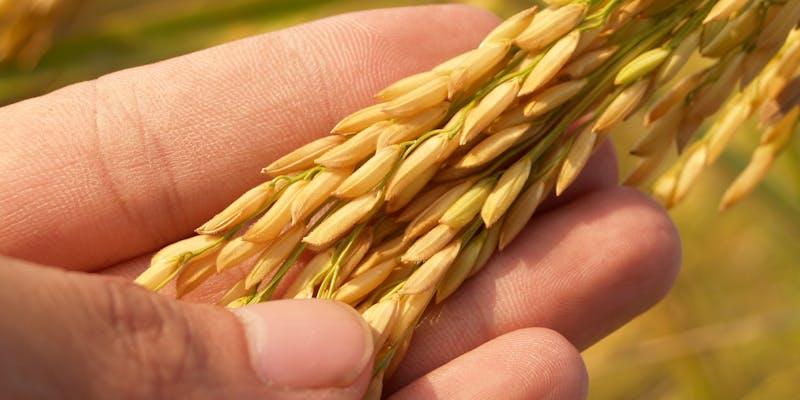A product is considered genetically modified when it contains a genetically modified organism (GMO). Plants or microorganisms could constitute genomically modified organisms. Modern biotechnology, genetic engineering, recombinant DNA technology, or gene technology in the challenge GMO industry refer to how scientists alter organisms' genetic code.
A desirable characteristic, such as resistance to insects, is selected as the initial stage in developing a genetically modified organism (GMO). Subsequently, challenge GMO industry to identify an organism (bacterium, plant, or animal) possessing the desired trait, replicate the gene responsible for that trait precisely, and implant it into that entity. Permission was granted for the proliferation of the newly modified organism with genetic material.
Side Effects and Risks of GM Foods

Allergies
An allergy response is the most common consequence of consuming genetically modified foods. When an allergen, a specific protein found in genetically modified (GM) foods, is attacked by the immune systems of humans, complications arise.
Simply transfer genes from one animal to another to modify the genetic composition of sustenance. Several individuals are concerned about the method's security because the additional DNA may cause sensitivities. Allergic substances are universally recognized as such because they elicit an unprecedented immune response.
Due to animal hybridization, new sensitivities may develop. The use of viral and bacterial genomes raises concerns about new human diseases. Your body may react if you eat a genetically engineered food with an unfamiliar protein. This may induce allergies. Gene editinginserting genes from bacteria or viruses into plantsmay create novel sensitivity Another issue is that genetically modified foods from the challenge GMO industry may raise the risk of related diseases.
Toxin Production in Food
Research and development of genetically modified (GM) crops aim to increase yields and pest resistance. However, the production of poisons presents severe safety issues. Insertion may damage the target gene and disrupt the host organism's metabolic processes.
Genome editing may give plants drought and pest tolerance. However, this procedure is not always effective. Insertions may harm plant genes, which might lead the plant to produce harmful substances. Eating enough genetically engineered foods is risky due to excessive pollutants.
The danger arises when the plant's genetic makeup may help make a list of man made foods that are incompatible with the inserted gene. Every living thing survives and grows on metabolic pathways and complex chemical processes. Foreign genes that disrupt these systems may have unanticipated impacts.
Lower Nutritional Quality
Unexpectedly, specific list of man made foods exhibit a lack of nutritionalworthiness. Enhancing agricultural productivity, reducing insect resistance, and extending expiration life are common objectives of genetic modification. This innovation may result in a reduction in the nutritional value of certain foods. A significant study on this matter is published in the Food Chemistry journal. Comparing genetically modified soybeans to organic soybeans reveals that the former contains greater quantities of proteins, healthful carbohydrates, selenium, and zinc.
This study discovered that pest-resistant plants may have reduced antioxidant phytochemical levels. GMOs may reduce the number and quality of antioxidants, which protect cells from oxidative stress. We jeopardize the nutritious value of an easier-to-grow, longer-lasting list of man made foods. A good incentive to change genes means there's no reason to give up. It targets food insecurity and pesticide usage. Despite this, nutritional value must be maintained. The above study shows that nutritional integrity and agricultural innovation must be balanced.
Impact Of Toxins On Soil
The environmental impacts of genetically modified (GM) commodities in GMO labs are equally, if not more, worrisome than their potential adverse effects on human health. To illustrate, groundwater contamination through hazardous chemical seepage is a significant concern exemplified by Bt corn. A gene originating from the bacterium Bacillus thuringiensis confers insect resistance to this hybrid of genetically modified maize. This bacterium attracts and eliminates parasites such as larval caterpillars by producing toxic proteins.
Due to insect resistance, this gene will eliminate the need for chemical pesticides in maize plants. However, these contaminants may sink into the earth, reducing this benefit. These contaminants may harm plant-essential microorganisms. By cycling nutrients, these microorganisms break down organic matter and nourish plants. Exclusion may cause soil nitrogen loss, reducing agricultural yields.
Since the Bt. Corn disaster the sustainability of genetically modified crops made in GMO labs has been questioned. While they lower insect populations, they threaten ecosystems, particularly soil health. Optimizing genetic changes while reducing their environmental effects requires a delicate balance.
Pesticide Resistance

Many are concerned about GMOs, particularly insect-repellent ones. Overreliance on genetically modified crops is raising concerns among scientists. Serious concerns include pesticide resistance by the pests these crops are meant to control.
This development worries me. In the long term, toxin-producing GMOs may not be the greatest pest management solution. Some fear that GMOs will be worthless when insecticides wear off. Scientists and farmers would have to develop new pest control techniques, which might disrupt farming.
Due to the limited understanding of the long-term consequences of the list of man made foods, it is critical to proceed cautiously and conduct additional research on the subject. Ensuring accurate monitoring of insect resistance trends and the development of effective solutions are essential activities. The overarching objective is to sustain ecological equilibrium while augmenting food production to meet the escalating worldwide need.
Impact On Biodiversity
Due to the development of genetically modified food in GMO labs, specific species of untamed flora and animals are in dire peril. Critical apprehension surrounds the possibility that selective breeding could result from genetic engineering, whereby specific species are advantageous while others are disadvantaged. Transgenic animals released into the wild threaten gene flow. This disruption will harm ecosystems more than it helps any one species. If GMOs outcompete their natural counterparts, ecosystem biodiversity may diminish. Fewer species make ecosystems more vulnerable to disease outbreaks and global warming.
Genetically engineered organisms made in GMO labs should be considered before their introduction for their possible influence on future ecosystems and their inhabitants. Growing hardy or pest-resistant crops has benefits beyond the immediate. Consider the larger picture and how these changes may affect our ecosystems. Biodiversity preservation is essential to natural habitats. Hence, these variables must be addressed before GM food production and distribution.







